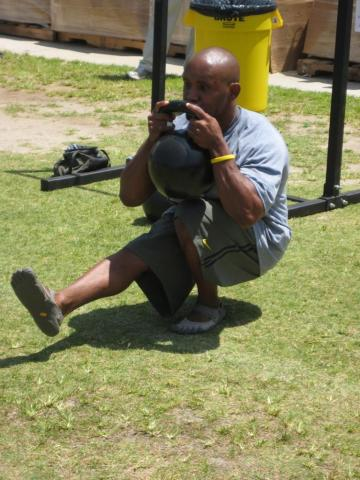BSMPG is proud to announce the addition of Ben Peterson as a speaker within the Sports Fusion Track at the 2013 BSMPG Summer Seminar - May 17th and 18th, 2013! Ben joins legendary track coach Randall Huntingon and Ben Prentiss along with keynote speakers, Dr. Stuart McGill, Marco Cardinale, Fergus Connolly, Adriaan Louw and Marvin Chun for this weekend event. With the most thorough and integrated speaker line-up ever assembled, the 2013 BSMPG Summer Seminar will be the WORLD'S most sought after Sports Medicine & Performance Seminar to date!!
We are expecting the largest crowd in the history of BSMPG events with speakers and attendees traveling the globe to be in Boston in May of 2013, and thus have already made plans to move our main lecture hall to a newly renovated multi-tier auditorium.
Be sure to save the date now - hotels will fill fast with this event along with normal Boston traffic so start making plans now!
See you in Boston next May!!!

BEN PETERSON, M.Ed., CSCS
Ph.D. Graduate Assistant, University of Minnesota
Topic: Repeated Sprint Ability: The metabolic and physiologic response to repeated sprint work and their implications for fatigue.
Ben is currently pursuing his Doctorate in Kinesiology and Exercise Physiology at the University of Minnesota. At the university he helps run the Sport Performance Lab, testing hundreds of athletes annually in sports ranging from cross-country skiing to football. In addition to his time in the lab, Ben helps teach two courses within the kinesiology department; Strength/Power Development and Health and Wellness. His research looks at repeated sprint ability in anaerobic athletes, specifically as it pertains to energy system efficiency and fatigue; looking at central and peripheral causes of decreased force production. His research also looks heavily at power and rate of force development in athletes and its dynamic correspondence and transferability to sport.
Ben is a graduate of Northwestern University where he played football for the Wildcats. He started his career as a performance coach working for the Minnesota Twins in 2008. Over the past five years, Ben’s passion and creativity have allowed him to work with over 100 professional athletes in the NHL, NFL, and MLB; helping them maximize the limits of their athletic potential. More recently, Ben co-Authored the book, Triphasic Training: A systematic approach to elite speed and explosive strength performance that explain the advanced training methods he uses to maximize force development and the scientific principles behind their implementation. When not teaching class or testing in the lab, Ben works as a consultant for Octagon Hockey, spending the NHL off-season working with their athletes in the Minneapolis area.




